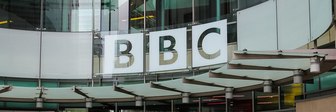Immigration has long been about the most incendiary issue in British politics. It is not just that polls show how consistently high among voters’ concerns the matter is; it’s also that many people feel extremely strongly about it. For politicians it is a minefield. However much they may express the wish to address the subject calmly and seriously, they often end up accused of stirring up prejudice, exploiting the issue for their own electoral purposes and making the whole situation worse.
So it has proved this week. On Thursday the Prime Minister made his first major speech on the subject since the election last May. He claimed that his speech was 'moderate, sensible and reasonable'. His message, in summary, was that although immigration had been in many ways a good thing for this country, its scale in recent years had been too great and needed to be reduced.
He had barely delivered the speech before being attacked for it by a member of his own cabinet. Vince Cable, the Business Secretary and former deputy leader of the Liberal Democrats, said publicly it was 'very unwise'. In private he was said to be 'incandescent' that he had not been shown the speech beforehand. His leader, the deputy prime minister, Nick Clegg, said he had seen the speech but didn’t agree with the 'language'.
Part of the criticism of Mr Cameron’s speech has been directed at its timing. His decision to deliver it now, when the local election campaign is underway and the referendum on the electoral system is less than a month off, is regarded by some as a cynical electioneering tactic to rally his own supporters on an issue he knows gets them going.
It is certainly true that the speech was highly partisan in that he put the blame for what he considers the current sorry state of affairs on the last Labour government. Between 1997 and 2009, he said, net immigration to Britain (that’s to say, the number of new immigrants settling minus the number of people emigrating) was 2.2 million.
Furthermore, he accused the last government of inflaming the debate about immigration. 'On the one hand, there were Labour ministers who closed down discussion, giving the impression that concerns about immigration were somehow racist. On the other, there were ministers hell-bent on burnishing their hardline credentials by talking tough but doing nothing to bring the numbers down.'
Mr Cameron knows that immigration is a sensitive issue among Labour voters, as Gordon Brown’s very public encounter with Gillian Duffy, the disgruntled Labour supporter in Rochdale during the election last year, showed. So Mr Cameron’s critics see his attack on Labour’s immigration record as blatant electioneering during the run up to next month’s local elections. His speech will have gone down well too with the Tory grassroots, many of whom are aggrieved by the perhaps inevitable neglect they seem to have felt within the politics of coalition government.
In purely political terms, of course, the row over the Prime Minister’s speech has also helped the Liberal Democrats who attacked it. For they too are anxious to define clear differences with their Coalition partners during this election period and the row will have enabled them to do so.
But what of the substance of Mr Cameron’s case? He was anxious to say how much benefit immigration had brought to the country and cited, among other things, the role of foreign doctors and nurses in our hospitals, and the spirit of entrepreneurship that many Asian immigrants had brought to the economy. But he said the scale of recent immigration had been disruptive to many communities where integration had not taken place.
He said: 'Real integration takes time. That’s why, when there have been significant numbers of new people arriving in neighbourhoods, perhaps not able to speak the same language as those living there, on occasions not really wanting or even willing to integrate, that has created a kind of discomfort and disjointedness in some neighbourhoods. This has been the experience for many people in our country – and I believe it is untruthful and unfair not to speak about it and address it.'
The key to Mr Cameron’s approach, then, is to cut numbers. He wants net immigration to be cut to 'tens of thousands' not hundreds of thousands. But his critics say that he lacks the means to ensure this will happen.
In the first place, they say, the focus on net immigration shows how little control the government really has: the number of net immigrants depends as much on the number of people emigrating as on the number seeking to settle here and the government can have no control over emigration numbers.
Furthermore, control over gross immigration is restricted by our legal obligations. Much of the 'discomfort and disjointedness' the Prime Minister speaks of has been caused, according to some, by the large-scale immigration into this country of workers from eastern Europe, initially from Poland in particular, but more recently from Romania and Bulgaria. But these immigrants are from European Union countries and have a legal right to live and work anywhere in the EU. Opponents of continued British membership of the EU, notably the United Kingdom Independence Party, regard the problem of immigration as a significant part of their case.
Attempts by the Government to restrict non-EU immigration have faced problems too. Business has fought efforts to reduce the number of non-EU skilled workers they can bring into the country, and the attempt to cut the number of so-called ‘bogus’ students coming here has run up against protest both from universities and English language colleges who need the income they bring.
There is, of course, another way to approach the problem Mr Cameron identifies. It is to try to speed up the integration process once immigrants have settled here. Governments of all parties have promoted the learning of English but the French government has gone much further in trying to enforce integration. This week it became illegal in France for Muslim women to appear in public wearing a face veil, or niqab. For French republicans, this prohibition is justifiable as a way of defending the secular nature of the French state. For others, though, the ban is an indefensible constraint on liberty.
Here, where the Muslim population is far smaller, such a ban is not on anyone’s agenda. But if the problems of integration continue to preoccupy politicians, it may be that before long some will start advocating equivalent measures to enforce integration.
What’s your view?
- Was David Cameron right to make the speech on immigration?
- Do you think it was 'moderate, sensible and reasonable', as he claimed, or 'very unwise', as Vince Cable said?
- What do you make of the charge that he made the speech for cynical electoral reasons?
- Do you agree with him or not that immigration has provided many benefits for Britain?
- Do you share his view that net immigration has been too high over the last fifteen years or so?
- Do you think he has a viable policy for reducing net immigration?
- Do you think immigration provides a cogent reason for Britain to leave the EU?
- Do you think France is right to impose a ban on the public wearing of the niqab?
- And what measures would you propose to improve integration in Britain?







